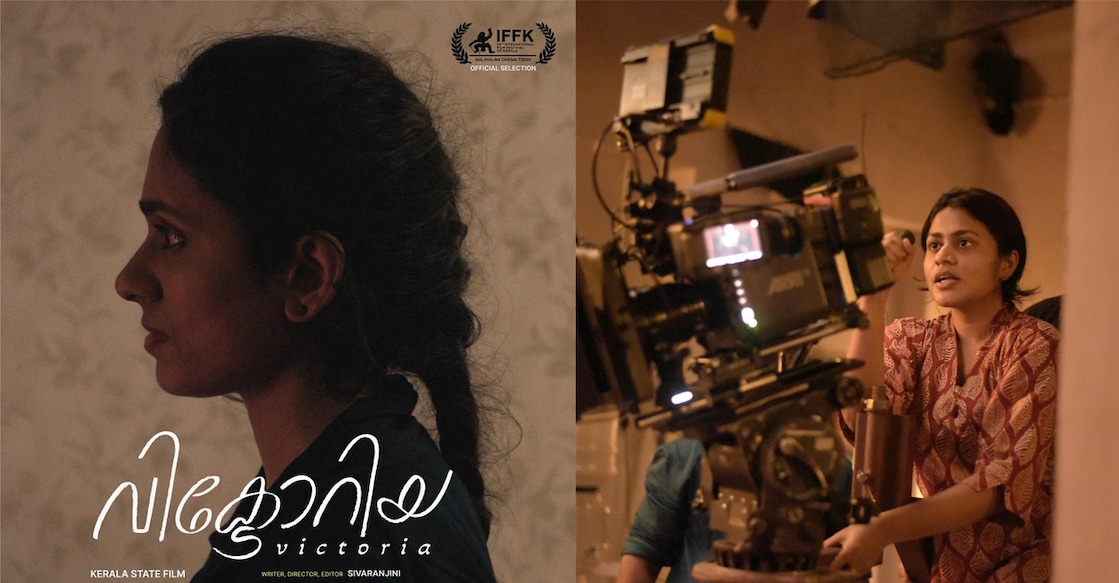‘Victoria’ at SIFF: How one rooster in a women-only space inspired Sivaranjini’s debut feature

Mail This Article
'Victoria', the only Indian film to be selected for the Asian New Talent competition at this year’s Shanghai International Film Festival (SIFF), marks a remarkable debut for filmmaker Sivaranjini J. A quiet, observational short set entirely in a women’s beauty parlour, 'Victoria' explores themes of gender, caste, class, and faith through the lives of six women. In a conversation with Onmanorama, Sivaranjini shared the story behind the making of the film and what this recognition means to her.
“I’m very excited,” Sivaranjini said, reflecting on the SIFF selection. “After IFFK, I always hoped my film would be part of an international festival. We submitted 'Victoria' to several festivals, but getting selected for SIFF, and being the only Indian film in the competition section makes it even more thrilling. It’s been amazing to see the responses from the audience in Shanghai.”
The story of 'Victoria' is rooted in a real-life moment of inspiration. “I was at a beauty parlour in Angamaly when I noticed a rooster inside. That image stuck with me,” she said. When the Kerala State Film Development Corporation announced a funding initiative for women filmmakers, she submitted a short synopsis and after a rigorous three-stage selection process, the project was greenlit. “It took a year, but the story grew from that simple observation.”

The beauty parlour, where the entire film takes place over a single day, becomes a site of quiet resistance and reflection. “I wanted to make a film about a space I was comfortable with — something grounded in the lives of women I know,” Sivaranjini explained. “There’s no loud messaging. It’s based on characters; women like my friends and my mother, and the everyday issues they face. The themes of caste, class, and religion are not deliberately placed; they emerge naturally from the lives of these characters.”
Interestingly, the rooster that appears in the parlour has sparked much discussion among viewers. While some interpret it as a symbol of male presence in a women-only space, Sivaranjini intended it to be open-ended. “It’s not just about men. The rooster also has a spiritual aspect — in places like Edappally church, they are offered in prayers. So I see it as symbolic on multiple levels.”
The film’s all-women cast (with the exception of the rooster and a male voice) was a deliberate creative decision. “Beauty parlours often have signs that say ‘Men not allowed’. We stayed true to that. It’s not about making a statement, it’s simply the nature of that space.” The only male presence is through a voice, the boyfriend of the lead character, Victoria, and a few men in the distant background.

Meenakshi Jayan, who plays the title role, brings a quiet intensity to her performance. A newcomer to feature films, she was cast after auditions in Angamaly and Chalakudy. “She worked incredibly hard. She took a crash beautician course, trained for three months in an actual parlour, and even learned the Angamaly dialect,” Sivaranjini said. “Because the film uses long takes and handheld shots, we couldn’t cheat, she had to do the waxing, facials, everything on camera. I wanted it to feel authentic.”
The choice of using long, uninterrupted takes and handheld cinematography helped create a feeling of intimacy and realism. “It was challenging, especially with a limited budget,” she recalled. “But our cinematographer was very supportive, and the art director built a fully functional parlour set inside Chitranjali Studio in Thiruvananthapuram. It was a true collaborative effort.”
'Victoria' has been well-received at festivals, and Sivaranjini is especially moved by how women in the audience connect with it. “At SIFF, many women came up to me asking if this is what India is really like. They were surprised to see religious and interfaith dynamics shown so subtly. It opened up a lot of conversation.”
Currently pursuing a PhD in Visual Communication at IIT Bombay, Sivaranjini says filmmaking has always been her passion. “I studied engineering because it felt safer, but during my final year I started applying to film schools. I went on to do my master’s in Film and Communication at NID Ahmedabad, worked as an editor for a while, and now I’ve finally had the chance to direct.”
As for what’s next, she’s keeping things open. “This whole journey has been a learning experience. From assembling the right crew to navigating festivals, it’s all new for me. I have ideas for future films, but nothing concrete yet. For now, I’m just grateful for 'Victoria' and the space it has created, both on screen and beyond.”


